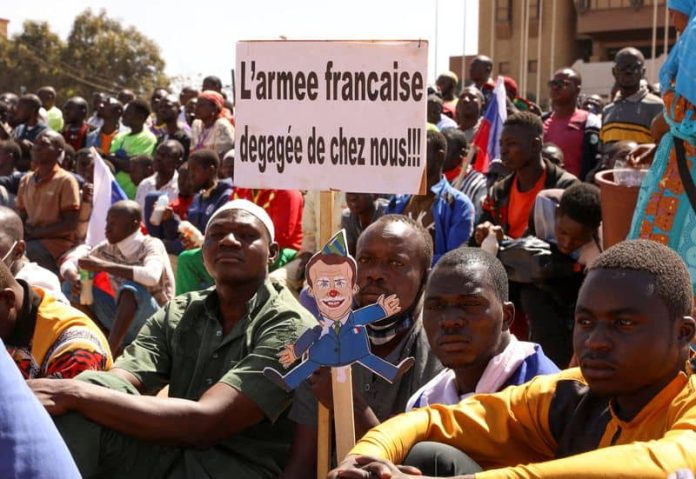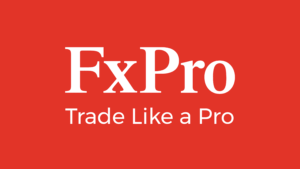By John Irish, Elizabeth Pineau and Bate Felix
PARIS/DAKAR (Reuters) – After armed men killed nine Chinese nationals at a gold mine in Central African Republic in March, a video circulated on the internet saying France had secretly ordered the attack and planned to discredit Russian mercenary group Wagner in the country.
In the video, a Central African Republic rebel fighter says “the French want to drive Wagner out of Africa”.
The clip rang alarm bells in Paris at a media monitoring unit within the foreign ministry created last year as part of a broad diplomatic strategy to revive ties in France’s former African colonies after years of waning influence.
The foreign ministry said the unit quickly traced the video to a cluster of Facebook (NASDAQ:META) and Twitter accounts with links to Russian disinformation, including from Wagner – an outfit close to the Kremlin that has troops in Ukraine and has fought on the side of several governments in Africa.
The video was an example of a growing Russian influence campaign that amplifies criticisms of France and presents Moscow as an ally in Central and West Africa, two diplomats at France’s foreign ministry said. The ministry denied any French role in the mine attack.
Wagner, the Kremlin and the government of Central African Republic did not respond to requests for comment for this story. The perpetrators of the attack have not been caught and Reuters was not able to determine who was behind it.
Russian propaganda has found fertile ground in Africa among grievances over France’s decades-old track record of military intervention and heavy-handed diplomacy, officials said.
Reuters spoke to more than a dozen French officials who described France’s increasingly urgent efforts to counter Moscow’s influence, which Paris believes undermines a long-term diplomatic effort aimed at overcoming the past and how it is perceived in Africa.
Operating from the ornate 19th century halls of the foreign ministry in the Quai D’Orsay in Paris, a team of 20 diplomats, ex-journalists, data analysts and media watchers typed away at their computers with televisions in the background when Reuters visited the unit in April.
In coordination with the French state’s service for Vigilance and Protection against Foreign Digital Interference (Viginum), the unit has mapped about 100 Russian- or Wagner-linked accounts putting out anti-French content, according to the two diplomats, who are involved in the initiative and requested anonymity to speak freely. Reuters was not able to independently confirm details of the accounts.
French Foreign Minister Catherine Colonna told parliament this month that anti-French sentiment in Africa could partly be blamed on “hostile actors, coming notably from Russia”.
Russia and Wagner have a track record of media manipulation and disinformation, which Wagner founder Yevgeny Prigozhin has admitted to. The European Union sanctioned Wagner in February for alleged rights abuses and spreading disinformation, including in Africa.
However, not all anti-French feeling in Africa can be blamed on Moscow. French military campaigns have caused civilian deaths, and many critical social media accounts reflect genuine concerns over France’s outsized role in African affairs.
Some criticisms “are true”, French President Emmanuel Macron told Reuters in Kinshasa at the end of a four-day central African tour in March, referring to the allegation France had continued to carry colonial attitudes even after independence in West Africa.
“We are no longer there to be the substitute for a coup d’etat or a failing political process,” Macron said.
In May, Russia’s foreign ministry spokesperson Maria Zakharova said France had been interfering in African nations’ internal affairs for decades, toppling leaders it objected to and building “a neo-colonial system of influence”. In contrast, she said, Russia did not interfere in other countries’ affairs.
The new media monitoring unit differs from a previous French effort, revealed by Facebook-owner Meta in 2020, that fought back online against Wagner-linked networks with fake accounts of its own.
The foreign ministry unit doesn’t promote or generate fake news, the two diplomats said.
WITHDRAWAL
The media monitoring unit emerged last July, the same month that France withdrew thousands of troops from Mali, a former colony in West Africa. A similar pull-out followed in neighbouring Burkina Faso at the start of this year – steps prompted in part by military coups and the presence of Wagner mercenaries in the region.
The military pullback was a significant failure for Macron and strengthened Moscow’s presence at a time the West was seeking to contain Russia over the invasion of Ukraine. It also dealt a setback to Western efforts to counter Islamist insurgents in the Sahel region.
After the withdrawals, the onslaught of anti-French content on social media and messenger apps continued: amplifying pro-Russian videos, animation and memes, and often spreading distorted or untrue stories, according to the two diplomats and four others.
This trend coincided with the expulsion of French news networks by the new military governments in Mali and Burkina Faso and local media tie-ups with Russia Today and other Russian state media ejected from Europe in the wake of the invasion in Ukraine. The war has reopened diplomatic fault lines between the West and Russia present in Africa since the Cold War.
“FAKE NEWS”
The video following the murder of the Chinese nationals was one of about 50 since November that have kept the unit busy identifying the source of material, fact-checking and responding when needed.
Highlighting the scale of the problem, on June 13, France said it had uncovered a mass Russian-linked disinformation campaign targeting the foreign ministry and French media, involving some of the same accounts and actors seen in its Africa monitoring activities. Russia did not publicly respond to the allegation.
The new team shares its information with embassies, other French ministries, intelligence agencies and France’s media regulator.
In many cases, including the Central African Republic video, the unit advises against responding directly, especially when the content does not appear to be gaining much traction.
Other times, it identifies which users are most active and takes the information to social media companies including Facebook and Twitter, alerting them to trolls and fake accounts, two of the diplomats said.
Sometimes, its work helps the French state respond. When a video titled “French humiliation” emerged in December 2022 showing a man falsely portrayed as a French envoy being expelled from the Democratic Republic of the Congo, the unit prepared a point-by-point response showing that the man was not a French diplomat.
Days later, the French embassy in Kinshasa issued the response in a series of statements to local and foreign media. Anne-Sophie Ave, then ambassador for French public diplomacy in Africa, reacted on Twitter, calling it “fake news”: “the gentleman in the video is not our ambassador to the DRC”.
PRIGOZHIN
The Central African Republic video bore the hallmarks of activities carried out by Project Lakhta, a Russian influence operation financed by Wagner founder Yevgeny Prigozhin, two of the French officials said.
Prigozhin said in February he created the Internet Research Agency, a Project Lakhta troll farm, to fight back against what he called the West’s anti-Russian propaganda.
The video alleging French involvement in the murder of Chinese citizens first emerged on the Facebook page Sango Ti Be-Afrika, the officials said.
Sango Ti Be-Afrika had previously been identified by Viginum as a conduit for Project Lakhta disinformation targeting France, the officials said. The video was then posted on Twitter by two military analysts who the officials described as proxies for Project Lakhta and who frequently post pro-Wagner content, they said.
U.S. military intelligence documents leaked online earlier this year and reviewed by Reuters allege that a Prigozhin employee who also works for Central African Republic’s President Faustin-Archange Touadera had in February proposed an anti-West influence campaign in the country, where Russia now has nearly 2,000 military trainers.
Reuters could not determine if that campaign was carried out. The Central African government and Prigozhin did not respond to questions about the allegations in the U.S. documents.
Meta removed the Sango ti Be-Africa after Reuters questions about the page. Meta said the page was taken down under its rules against recidivism because the owner had previously been removed from its platforms. Reuters was not able to identify representatives of Sango ti Be-Africa for comment. Twitter did not respond to a request for comment.
Meta publishes reports on its actions against networks that show government interference. This year it has removed such networks in Burkina Faso and Togo. In 2020, it suspended networks connected to individuals associated with past activity by the Internet Research Agency, ahead of an election in Central African Republic, according to a statement on its website.
“CLUMSINESS”
Since completing the withdrawal from Mali in 2022 and Burkina Faso in 2023, and as part of its new diplomatic push, France says it has been reshaping its military presence in the region to adopt a more collaborative approach.
It has also pushed an economic, cultural and social action plan first promoted by Macron when he came to power in 2017, and has been vocal about the scale of the support, which dwarfs Russian aid.
However, the foreign ministry unit, and the broader strategy, will face an uphill battle to convince people in Africa that France has changed, seven analysts and diplomats said.
“They basically lost the communication war” because of the degree of cynicism and mistrust about France’s intentions, said Michael Shurkin, Director of Global Programs at 14 North Strategies, a business consultancy focused on Africa.
An ongoing sense that France backs its preferred candidates still rankles with some politicians.
“I’m not saying Macron is arrogant towards Africa, but there’s a lot of clumsiness”, Jean Gaspard Ntoutoume Ayi, vice president of National Union, an opposition Gabonese party, said in Libreville.
Elections in Senegal in 2024 and Ivory Coast in 2025, will test the effectiveness of the new initiatives, with anti-French media content expected to increase, foreign ministry officials said.
“If people don’t agree they must be able to express themselves,” said a French official involved in the Africa strategy.
“You have to distinguish what is in the public debate and what is manipulation. Then you need to explain, explain, explain”.




















